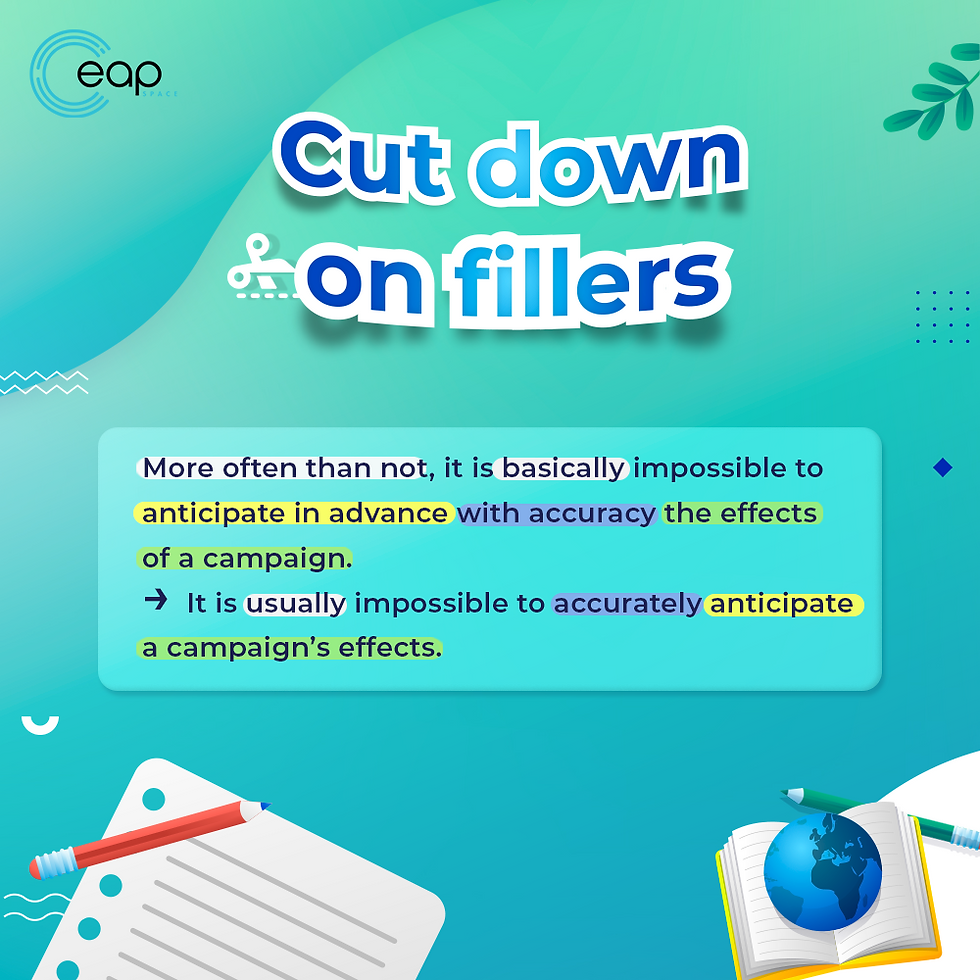Stay concise in academic English writing
- Huy Vũ Tạ
- Oct 12, 2023
- 2 min read

Even in academic English, concise and direct writings are often preferred over long and wordy ones. In this article, we will introduce some tips when writing to get the point across in an efficient manner.
The idea of your article might be perfect with logical reasoning and compelling evidence. However, these brilliant arguments can be lost or even misinterpreted if your writing is bogged down by needlessly complex wording and convoluted sentences. In most academic and professional writing, conveying your full idea most efficiently and concisely is of utmost importance.
Here are some tips students can keep in mind to avoid wordiness and produce clearer writing.
1. Find the “golden” word
English is full of expressive and contextual vocabulary that can describe specific attributes, feelings and phenomena. By using more specific words, we avoid adding extra bulk from adverbs or adjectives to our writing. This can demonstrate your high command of academic English, as well as present your ideas more clearly.

2. Avoid redundant repetitions
In English speaking, we sometimes repeat the synonym of a word to create buffer time before continuing. While this can sometimes be applied in writing to create emphasis, it is usually more of a bad habit than a thoughtful writing technique. Next time you are editing your essay, look out for these unnecessary repetitions and remove them.

3. Cut down on fillers
Another bad habit usually picked up from speaking is excessive usage of unnecessary modifiers, qualifiers and wordy phrases. It may seem natural to use these in speech with expressive intonations, but they rarely add value to your idea in writing. During editing, it is worthwhile to remove or replace them with shorter words for smoother comprehension.





Comments